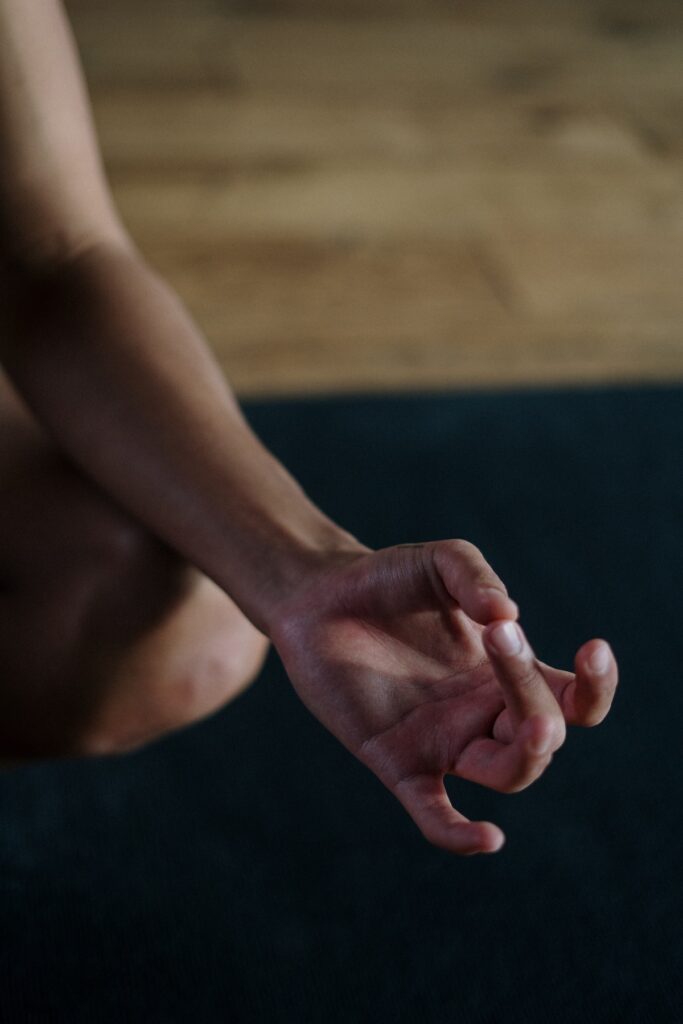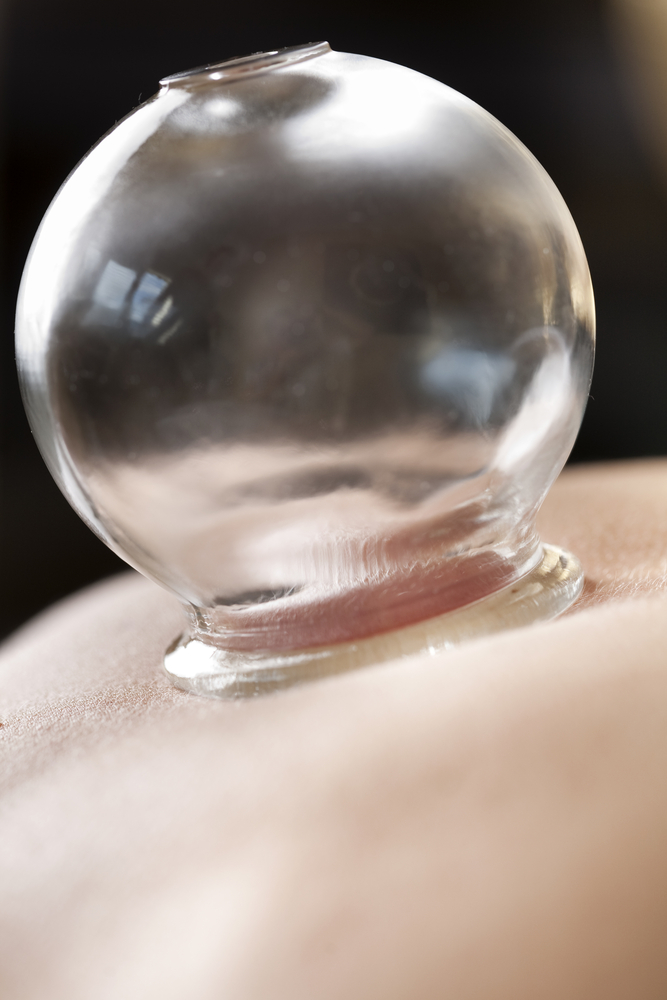THE NEW DEFINITION OF WELLNESS
Combining Traditional & Modern Medicine

Wellness is a buzzword that’s been thrown around a lot recently, particularly in 2020. As the desire for a more well-rounded life continues to grow, so do ideas about achieving that balance.
So, by default, we have experienced a firsthand shift in what “wellness” actually means.
There’s a new definition of wellness that spiritual gurus and mindfulness-frontiers are creating for us, and it has a lot to do with Eastern medicine practices.
Defining What “Wellness” Means
Every single person has their own definition of what wellness means. The word itself is entirely subjective because it holds a different level of significance based on one’s mentality and lifestyle choices.
Suppose Joe is not really into living a healthy lifestyle. In that case, his definition (significance) of wellness will be drastically different from Susie, who only shops at Whole Foods and attends morning yoga. See where the lines are drawn there?
However, most people tend to think wellness means overall happiness- or at least putting in effort to take care of oneself to achieve a comfortable existence. With that said, you could also describe wellness as more of a “feeling” rather than a concrete definition.
What is the Old Definition of Wellness?
 The phrase “wellness” in Western minds has always meant a lack of sickness- prime health, if you will. It did not consider the emotional or mental body in the old definition. Which, if you ask us, is a major flaw since all aspects of our being should be cared for.
The phrase “wellness” in Western minds has always meant a lack of sickness- prime health, if you will. It did not consider the emotional or mental body in the old definition. Which, if you ask us, is a major flaw since all aspects of our being should be cared for.
Wellness used to be just about eating healthy and exercising, getting enough sleep and drinking water, but now the definition has evolved to include all aspects of one’s life. While we think of this as modern medicine, this is actually ancient Eastern medicine at work.
Let’s first talk about what Eastern wellness is before we bridge ideas together to get our modern definition of wellness.
What is Traditional (Eastern) Wellness?
Traditional Chinese medicine (aka Eastern) is what many of our modern practices are based on. Our ancient healers knew that there was more to the physical body than what we could physically see- emotion, spirit, mentality.
Eastern wellness takes all four layers and combines them into one, looking at each part individually but also as a complete system. It’s quite magical, really.
While traditional Chinese medicine does use supplements to treat bodily illness, it’s nothing like what we know in the Western world. There is this emphasis on full-body health rather than just popping a cure-all pill.
Also, Eastern medicine teaches us that wellness extends far beyond our physicality. We can experience well-being on a mental, emotional, and spiritual level.
Creating the New Definition of Wellness
 Combine the old definition of wellness with traditional Eastern practices, and you’re left with an expanded & evolved version of the word. The new definition is paired with other buzzwords like holistic, mindfulness, self-care, etc.
Combine the old definition of wellness with traditional Eastern practices, and you’re left with an expanded & evolved version of the word. The new definition is paired with other buzzwords like holistic, mindfulness, self-care, etc.
Here’s a news flash: holistic living is not a new trend. It’s been an active, living idea for centuries. For some reason, we are just now catching on in the Western world.
Millennials are the primary pioneers of this change in definition, realizing that well-being is more than a catchphrase that means, “Eat your veggies.” No, well-being is starting to mean much more than that in 2020.
If you ask the average person over the age of 40 what “wellness” means, they’ll likely give you the old definition. Not because they don’t care about mental or emotional health, but because it’s not at the forefront of their everyday lives.
However, younger generations are planting the seeds for mindful living now. So, as newer generations rise, the modern definition of wellness will be a well-established concept.
How Eastern Medicine Plays Into the New Definition of Wellness
So, you know that the modern definition of wellness includes Eastern medicine practices, but what does that entail? What even is Eastern medicine?
You have probably experienced some form of traditional Chinese medicine without even realizing it. Simple practices like mindful breathing and yoga might feel modern, but they’ve been circulating the Eastern globe forever, it seems.
Here are a few practices that might seem new to the wellness scene but are actually very seasoned.
Acupuncture
People used to view acupuncture as a quick way to release tension in the spine or whatnot, but it’s morphed with time. Now, in the West, hip humans flock to acupuncturists to release energy blockages in the body. After all, we are made of flowing energy.
Cupping
 This one is VERY new to the West, but it’s gaining momentum. Cupping involves placing specially-designed cups along the back. A vacuum-like seal is created, giving the back a deep tissue massage and improving blood circulation—modern self-care at its finest.
This one is VERY new to the West, but it’s gaining momentum. Cupping involves placing specially-designed cups along the back. A vacuum-like seal is created, giving the back a deep tissue massage and improving blood circulation—modern self-care at its finest.
Herbal Remedies
We love brewing up a peaceful herbal remedy. Literally any body oil, tincture, salve, or essence that is made from all-natural herbs falls into this healing category. Herbs are given to us by nature for a reason, so using them for wellness is resourceful and feels grounding too.
Meditation
Meditation is a powerful practice that feeds mind, body, and spirit. It allows one to release stress and come back to the present moment. Sit back, close your eyes, and take a deep breath. Feel relaxation pour over you, and unclench each muscle from head to toe.
Qi gong
Qigong is powerful in the sense that the movements push qi through the meridians. Unlike yoga, it is a martial art that has always worked on well-being. By harnessing the body with the mind, qi gong acts like a needle-less acupuncture.
Yoga
Yoga was arguably one of the first accepted Eastern wellness practices in the West. When performing yoga movements, the muscles are stretched and strengthened, creating stability and flexibility in one. Mindful breathing is paired with yoga as well for an added well-being boost.
Reiki
Although Reiki might seem a bit farfetched to some Westerners, the idea of a universal energy flow is not new to Eastern medicine. In traditional Chinese medicine, qi (energy) flows throughout everything around us. So, using Reiki in wellness is a way to direct that flow of energy to create balance within the body.
How to Practice Modern Wellness in 2020
If you are unfamiliar with practicing modern wellness, don’t sweat it too much. Since Eastern medicine and the idea of “wellness” have fused into one cohesive concept, your options for self-care are endless. What feeds the spirit feeds the body, what nourishes the mind nourishes the spirit, etc.
Going back to what we said earlier, wellness is different for everyone, so you should always do what works best for you and feels right.
Start practicing modern self-care by trying out one (or all) of the mindfulness practices below.
- Care out time for yourself.
- Try pairing yoga with meditation.
- Journal or write down your thoughts.
- See a Reiki healer.
- Meditate with a purpose.
- Consciously choose your foods.
- Bathe in the sun.
- Get a deep tissue massage.
- Set health goals and achieve them.
- Try a juice cleanse.
- Make your own herbal tea blend.
As we see a shift in the definition of wellness, we also experience a culture shift. The global “wellness economy” is valued at $4.5 trillion as of 2020.
Perhaps the West realizes that it’s time to slow down a bit and place more of an importance on overall health, not just a balanced diet.
What is your personal definition of modern wellness?
Newer
5 Ways To Start Eating More Mindfully
Older
3 Eastern Medicine New Year's Resolutions For 2022
Comments (0)
Leave a reply
You must be logged in to post a comment.




